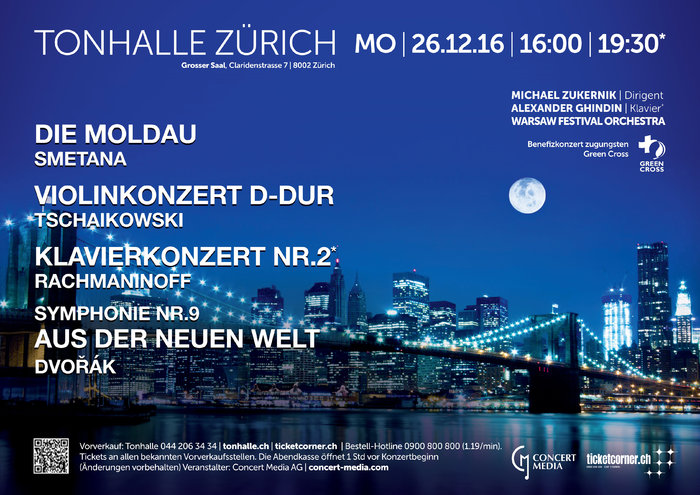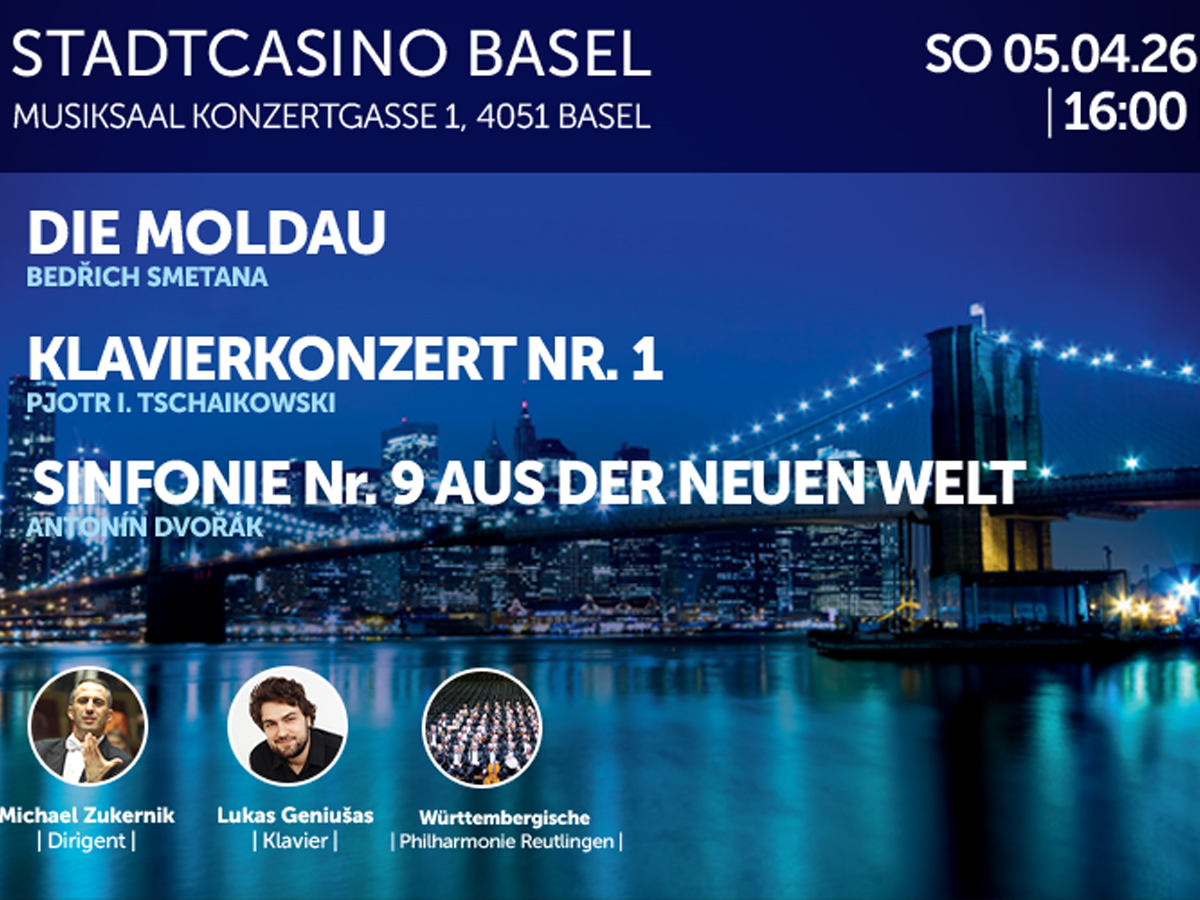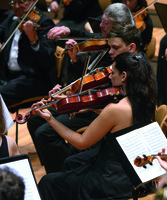

Christmas concert with video: Smetana | The Moldau
Rachmaninov 2nd Violin Concerto D major | Dvořák 9th Symphony "From the New World"
Location
Composer
Conductor & Orchestra
On the occasion of the feast day, we invite you on a musical journey through Europe: Under the direction of Michael Zukernik, the Warsaw Festival Orchestra presents an atmospheric concert evening in the large hall of the Tonhalle Zurich with highlights by Smetana and Dvořák. The piano concerto by Rachmaninoff is interpreted by the internationally experienced pianist Alexander Ghindin.
The principal conductor of the Philharmonic Chamber Orchestra Berlin is present at numerous internationally distinguished and diverse conducting consoles and he has already directed several important formations.
The concert will be opened with the famous work "Die Moldau" by Bedřich Smetana from the cycle My Fatherland (Má vlast). The main motif flows succinctly through this work, which was processed by Smetana from the famous Renaissance song La Mantovana and was, for example, also received in the popular Israeli national anthem.
This is followed by Sergei Rachmaninov's 2nd Concerto for Piano and Orchestra in C Minor, op.18. This work was composed by Rachmaninoff between 1901 and 1902 after a serious creative crisis and seems to have been a liberation for the Russian composer. On the other hand, the romantic concert in three movements also reflects the melancholy of Rachmaninoff. At the piano sits the internationally experienced pianist Alexander Ghindin. Always popular with critics and music lovers, Alexander Ghindin is recognized as one of the most talented and original pianists of today. Even before graduating from the Conservatory, at the age of 17, he was the youngest winner of the International Tchaikovsky Competition in Moscow. He then won the second prize in the international Queen Elisabeth Piano Competition in Brussels in 1999. These successes allowed him a quick entry into the world of the masters.
Antonín Dvořák calls his ninth and last symphony "New World", which premiered at Carnegie Hall New York in 1893. Although the symphony was written in the United States, "Out of the New World" can not be called American music. It represents the last peak of Dvořák's symphonic work and serves us as the culmination of a concert tour through musical Eastern Europe.

Michael Zukernik, Conductor
Lukas Geniušas, Piano
















